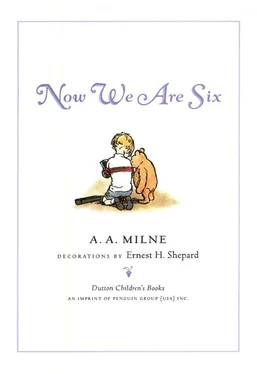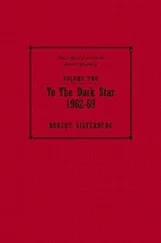A Milne - Now We Are Six
Здесь есть возможность читать онлайн «A Milne - Now We Are Six» — ознакомительный отрывок электронной книги совершенно бесплатно, а после прочтения отрывка купить полную версию. В некоторых случаях можно слушать аудио, скачать через торрент в формате fb2 и присутствует краткое содержание. Жанр: Детские стихи, на английском языке. Описание произведения, (предисловие) а так же отзывы посетителей доступны на портале библиотеки ЛибКат.
- Название:Now We Are Six
- Автор:
- Жанр:
- Год:неизвестен
- ISBN:нет данных
- Рейтинг книги:5 / 5. Голосов: 1
-
Избранное:Добавить в избранное
- Отзывы:
-
Ваша оценка:
- 100
- 1
- 2
- 3
- 4
- 5
Now We Are Six: краткое содержание, описание и аннотация
Предлагаем к чтению аннотацию, описание, краткое содержание или предисловие (зависит от того, что написал сам автор книги «Now We Are Six»). Если вы не нашли необходимую информацию о книге — напишите в комментариях, мы постараемся отыскать её.
Now We Are Six — читать онлайн ознакомительный отрывок
Ниже представлен текст книги, разбитый по страницам. Система сохранения места последней прочитанной страницы, позволяет с удобством читать онлайн бесплатно книгу «Now We Are Six», без необходимости каждый раз заново искать на чём Вы остановились. Поставьте закладку, и сможете в любой момент перейти на страницу, на которой закончили чтение.
Интервал:
Закладка:
The Knight Whose Armour Didn’t Squeak
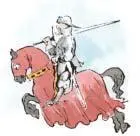
Of all the Knights in Appledore
The wisest was Sir Thomas Tom.
He multiplied as far as four,
And knew what nine was taken from
To make eleven. He could write
A letter to another Knight.

No other Knight in all the land
Could do the things which he could do
Not only did he understand
The way to polish swords, but knew
What remedy a Knight should seek
Whose armour had begun to squeak.
And, if he didn’t fight too much,
It wasn’t that he did not care
For blips and buffetings and such,
But felt that it was hardly fair
To risk, by frequent injuries,
A brain as delicate as his.
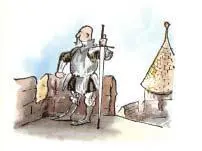
His castle (Castle Tom) was set
Conveniently on a hill;
And daily, when it wasn’t wet,
He paced the battlements until
Some smaller Knight who couldn’t swim
Should reach the moat and challenge him.
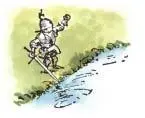
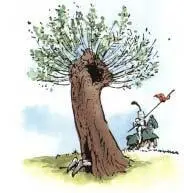
Or sometimes, feeling full of fight,
He hurried out to scour the plain;
And, seeing some approaching Knight,
He either hurried home again,
Or hid; and, when the foe was past,
Blew a triumphant trumpet-blast.
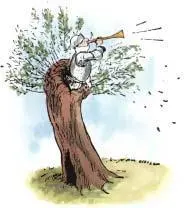
One day when good Sir Thomas Tom
Was resting in a handy ditch,
The noises he was hiding from,
Though very much the noises which
He’d always hidden from before,
Seemed somehow less…. Or was it more?
The trotting horse, the trumpet’s blast,
The whistling sword, the armour’s squeak,
These, and especially the last,
Had clattered by him all the week.
Was this the same, or was it not?
Something was different . But what?
Sir Thomas raised a cautious ear
And listened as Sir Hugh went by,

And suddenly he seemed to hear
(Or not to hear) the reason why
This stranger made a nicer sound
Than other Knights who lived around.
Sir Thomas watched the way he went—
His rage was such he couldn’t speak,
For years they’d called him down in Kent
The Knight Whose Armour Didn’t Squeak!
Yet here and now he looked upon
Another Knight whose squeak had gone.
He rushed to where his horse was tied;
He spurred it to a rapid trot.
The only fear he felt inside
About his enemy was not
“How sharp his sword?” “How stout his heart?”
But “Has he got too long a start?”
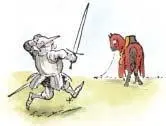
Sir Hugh was singing, hand on hip,
When something sudden came along,
And caught him a terrific blip
Right in the middle of his song.
“A thunderstorm!” he thought. “Of course!”
And toppled gently off his horse.
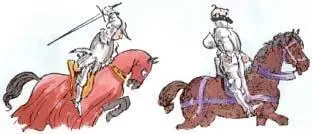
Then said the good Sir Thomas Tom,
Dismounting with a friendly air,
“Allow me to extract you from
The heavy armour that you wear.
At times like these the bravest Knight
May find his armour much too tight.”
A hundred yards or so beyond
The scene of brave Sir Hugh’s defeat
Sir Thomas found a useful pond,
And, careful not to wet his feet,
He brought the armour to the brink
And flung it in…and watched it sink.
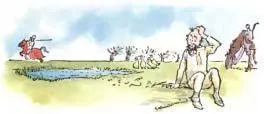
So ever after, more and more,
The men of Kent would proudly speak
Of Thomas Tom of Appledore,
“The Knight Whose Armour Didn’t Squeak”
Whilst Hugh, the Knight who gave him best,
Squeaks just as badly as the rest.
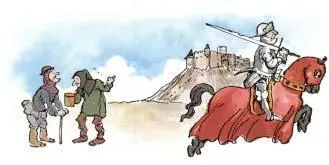
Buttercup Days
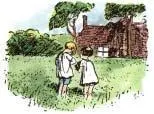
Where is Anne?
Head above the buttercups,
Walking by the stream,
Down among the buttercups.
Where is Anne?
Walking with her man,
Lost in a dream,
Lost among the buttercups.
What has she got in that little brown head?
Wonderful thoughts which can never be said.
What has she got in that firm little fist of hers?
Somebody’s thumb, and it feels like Christopher’s.
Where is Anne?
Close to her man.
Brown head, gold head,
In and out the buttercups.

The Charcoal-Burner
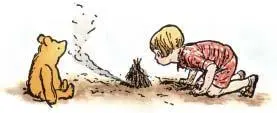
The charcoal-burner has tales to tell.
He lives in the Forest,
Alone in the Forest;
He sits in the Forest,
Alone in the Forest.
And the sun comes slanting between the trees,
And rabbits come up, and they give him good-morning,
And rabbits come up and say, “Beautiful morning….”
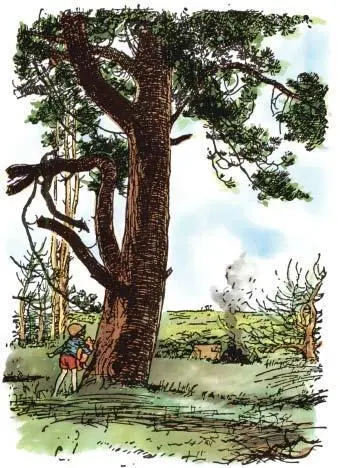
And the moon swings clear of the tall black trees,
And owls fly over and wish him good-night,
Quietly over to wish him good-night….
And he sits and thinks of the things they know,
He and the Forest, alone together—
The springs that come and the summers that go,
Autumn dew on bracken and heather,
The drip of the Forest beneath the snow….
All the things they have seen,
All the things they have heard:
An April sky swept clean and the song of a bird…
Oh, the charcoal-burner has tales to tell!
And he lives in the Forest and knows us well.
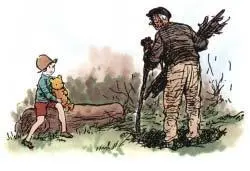
Us Two
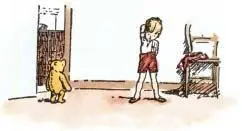
Wherever I am, there’s always Pooh,
There’s always Pooh and Me.
Whatever I do, he wants to do,
“Where are you going today?” says Pooh:
“Well, that’s very odd ’cos I was too.
Let’s go together,” says Pooh, says he.
“Let’s go together,” says Pooh.
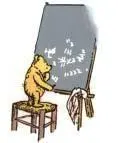
“What’s twice eleven?” I said to Pooh.
(“Twice what?” said Pooh to Me.)
“I think it ought to be twenty-two.”
“Just what I think myself,” said Pooh.
“It wasn’t an easy sum to do,
But that’s what it is,” said Pooh, said he.
“That’s what it is,” said Pooh.

“Let’s look for dragons,” I said to Pooh.
“Yes, let’s,” said Pooh to Me.
We crossed the river and found a few—
“Yes, those are dragons all right,” said Pooh.
“As soon as I saw their beaks I knew.
That’s what they are,” said Pooh, said he.
“That’s what they are,” said Pooh.
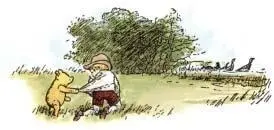
“Let’s frighten the dragons,” I said to Pooh.
“That’s right,” said Pooh to Me.
“ I’m not afraid,” I said to Pooh,
And I held his paw and I shouted “Shoo!
Silly old dragons!”—and off they flew.
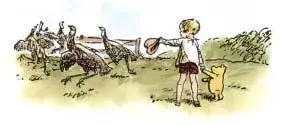
“I wasn’t afraid,” said Pooh, said he,
“I’m never afraid with you.”
So wherever I am, there’s always Pooh,
There’s always Pooh and Me.
“What would I do?” I said to Pooh,
“If it wasn’t for you,” and Pooh said: “True,
It isn’t much fun for One, but Two
Can stick together,” says Pooh, says he.
“That’s how it is,” says Pooh.
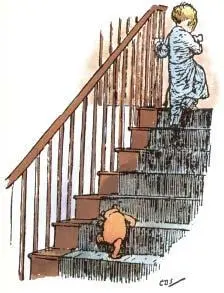
Интервал:
Закладка:
Похожие книги на «Now We Are Six»
Представляем Вашему вниманию похожие книги на «Now We Are Six» списком для выбора. Мы отобрали схожую по названию и смыслу литературу в надежде предоставить читателям больше вариантов отыскать новые, интересные, ещё непрочитанные произведения.
Обсуждение, отзывы о книге «Now We Are Six» и просто собственные мнения читателей. Оставьте ваши комментарии, напишите, что Вы думаете о произведении, его смысле или главных героях. Укажите что конкретно понравилось, а что нет, и почему Вы так считаете.
